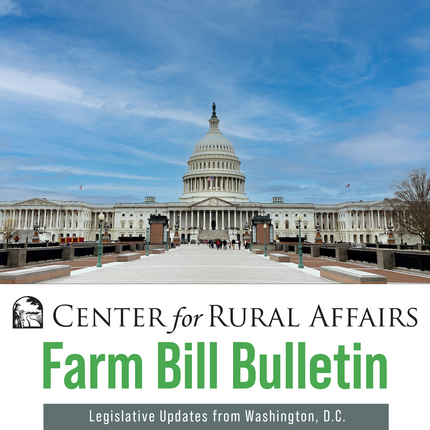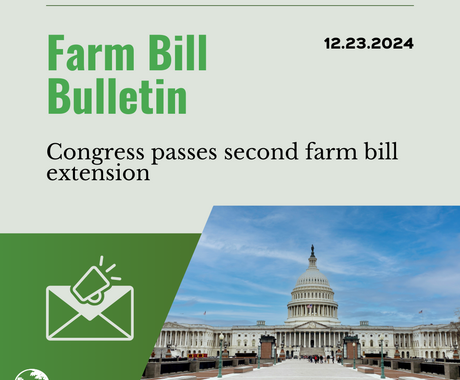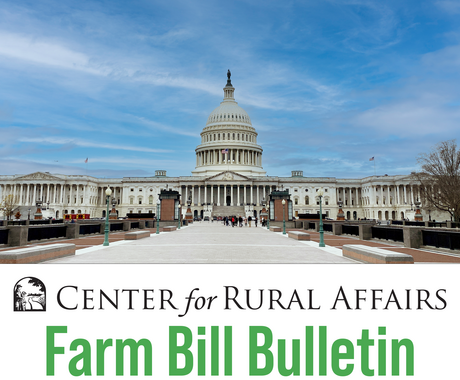With fewer than four months of 2024 remaining, the window of opportunity for Congress to pass a new farm bill is narrowing. Partisan divides on key issues, as well as November’s general election, are just two of the many factors at play as lawmakers prepare their final to-do list for the year.
The path to a new farm bill has been long, and there remains much work to be done. Marker bill introductions and negotiations began in 2023, and an extension of the 2018 farm bill allowed conversations to continue into 2024. Unfortunately, lawmakers remain in the preliminary stages of passing the omnibus legislation through Congress. Progress remains where it stood on May 30, when we published our last Farm Bill Bulletin. The House of Representatives passed its version of the bill—the Farm, Food, and National Security Act of 2024—on May 23. The Senate’s version of the bill—the Rural Prosperity and Food Security Act of 2024— has yet to be voted on by the Agriculture Committee. Only a detailed summary has been released.
Despite ongoing negotiations, there are three topics at the core of partisan disagreements. First, lawmakers do not see eye-to-eye on the climate guardrails established by the Inflation Reduction Act (IRA). With these guardrails in place, only a subset of conservation practices are eligible for financial assistance using IRA funds. Second, lawmakers disagree on whether reference prices for crop insurance should be raised and, finally, whether more money should be made available for the Supplemental Nutrition Assistance Program (SNAP). These disagreements are further compounded by efforts to maintain a budget-neutral farm bill, which often requires taking money away from one program to support another. In addition, lawmakers are simply running out of time, as passing next year’s federal budget—or a continuing resolution—will require their attention before Sept. 30.
While the outlook for the remainder of the year is uncertain, it is likely that one of two scenarios will result. Congress will either pass a new farm bill during the “lame duck” session following the election or punt the reauthorization process to 2025, which means it will be picked up by a new Congress and administration. The latter scenario would require lawmakers to pass a second extension of the 2018 farm bill by Sept. 30.
Regardless of the path ahead, advocacy for a farm bill that provides for strong rural communities is as essential as ever. If you want assistance contacting your U.S. representative or senators to express your support, please email me at [email protected]. You can find contact information for your members of Congress here.





